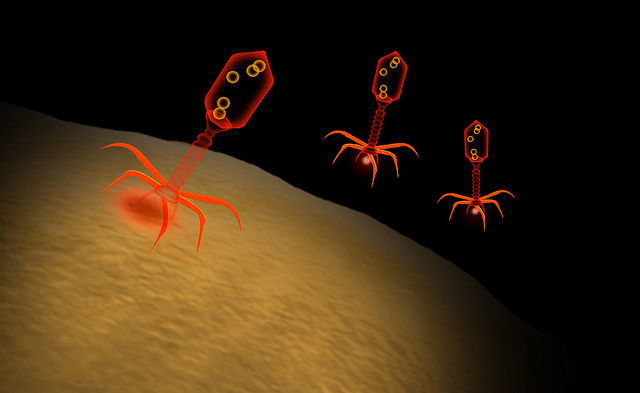Medicalizing viruses that attack bacteria

An artistic interpretation of Bacteriophages. (credit: Flickr user: Zappy's Technological Solutions)
Bacteriophages, or viruses that infect bacteria, were on the cusp of becoming medical therapies in the middle of the twentieth century. But before the viruses got a shot in clinics, researchers discovered the wonder drugs that we now know as antibiotics. With those drugs now failing as pathogenic bacteria grow ever more resistance to classic and modern antibiotics, researchers are once again eyeing bacteriophages (or just "phages" to their friends) as attractive tools for combating infectious diseases.
This past July, the National Institute of Allergy and Infectious Diseases hosted a conference on bacteriophage therapy with the stated goal of developing phages as "a means to specifically target antimicrobial resistance while preserving the natural microbiome." Phage-based treatments can fight infections while helping to preserve the microbiome (our normal bacterial communities) because the viruses are much more specific than the broad-spectrum antibiotics now in use.
Today, those antibiotics indiscriminately kill a large range of microbes they encounter. But at the time researchers first developed and promoted antibiotics, they were unaware of the human microbiome's existence, let alone its importance.
Read 7 remaining paragraphs | Comments